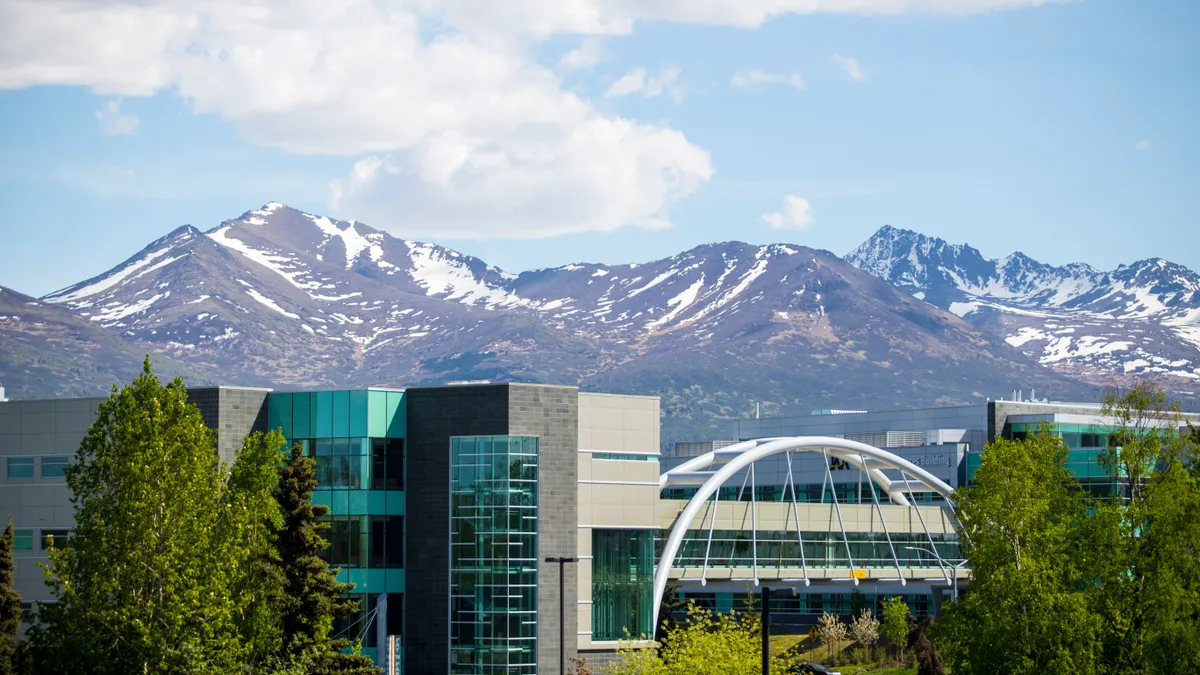Cathy Sandeen is the chancellor of the University of Alaska Anchorage
Although we're in various stages of coronavirus lockdown, not all leadership searches have ground to a halt. Certainly, pausing a search during this pandemic is a valid approach, but other institutions have chosen to move forward decisively to recruit the leaders they need. During these times of challenge, we need change managers more than ever before.
Late in the fall semester of 2019, we launched national searches, aided by search firms, for three critical positions at the University of Alaska Anchorage: provost, chief diversity officer and director of a community campus. We're located in a remote state with well-publicized budget challenges. Under the best of conditions, there were concerns about the success of these searches, but then the pandemic hit, shifting us to a virtual world and much uncertainty. Our financial and time investment was a sunk cost, so we decided to proceed.
We successfully completed all three searches and ended up with our top choices. Two of our new leaders accepted positions without seeing the campus or city in person.
Until now, we never dreamed of tossing out the in-person, run-the-gauntlet tradition of major searches, and we couldn't imagine hiring for a key position without seeing finalists in person. But a virtual process for recruiting leaders has advantages. Here are some of the lessons we learned.
We may have the opportunity to provide more equity
Besides saving time and money for all involved, a virtual interview process levels the playing field in many ways. Every candidate is a face on a screen. After months of video chats, interviewers are more willing to extend grace for the small interruptions that are part of working from home, while maintaining the rigor and integrity called for by an interview process.
There is less need for small talk between meetings and during meals where members of privileged groups may have had an unfair advantage in the past. A candidate's physical appearance and physical disability status are less apparent, reducing opportunities for implicit bias from interviewers. Those interviewing and interacting with candidates are more focused on content over appearance or style. Because of these factors, a virtual process may reduce the amount of subjectivity and bias introduced to the process.
A virtual process can allow greater campus participation
Without the time constraints of a tight campus visit schedule at the busiest time of the academic term, the search committee can schedule even more virtual one-on-one meetings with key stakeholders than is typically possible through a live campus visit process.
We achieved higher attendance in our virtual public forums that we usually achieved in prior in-person events. Without travel, it's simply easier for community members to fit a virtual meeting into their schedules. We also recorded our public forums so anyone who wanted to view them could.
Because future work is likely to include a greater proportion of virtual meetings than in the past, the virtual search process allows committees to assess a candidate's ability to communicate in this new and increasingly important format.
Search consultants are vital
Search consultants are especially important during this time. These are unusual times, and both the institution and candidates are a bit nervous. Consultants can ease that tension. They can advise search committees on devising a fair virtual process and a realistic schedule. They also play a role in keeping solid candidates in the process and advising candidates on how best to present themselves in a virtual interview.
For new searches, consultants also can selectively reach out to potential applicants who meet the profile of someone who embraces challenge and who is flexible enough to shift gears into a new type of interview process.
Searches can have smaller, more committed applicant pools
In general, as people "hunker down," fewer people will be willing to relocate and we'll see fewer candidates shopping around and entering multiple searches. Motivated up-and-comers will continue to seek their next opportunity and will be more selective with a focus on mission alignment and the fit of their skills and abilities.
On the other hand, during and immediately following the pandemic, many people may want to relocate closer to family. Search committees may be able to recruit experienced leaders who might not have considered your institution before. And with many institutions delaying their searches, there may be less competition for top leaders.
Settling for an organizational chart with big holes or a preponderance of interim appointments is not a good strategy as we move into an unprecedented fast-paced and uncertain era for higher education. Valued long-term colleagues who have paid their dues and made multiple contributions to their colleges or universities over a lifetime deserve to fulfill their plans to retire and pass the baton to the next generation of leaders.
Bold, forward-looking colleges and universities will take this opportunity to fill key leadership positions. Given the new context for searches and those who will participate, we may look back and say our "COVID hires" were some of the best decisions we ever made.

















